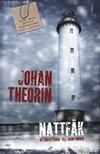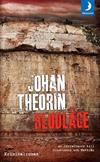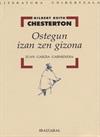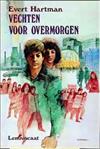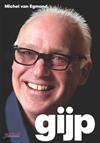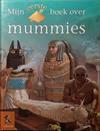Work
by James Suzman | Nonfiction | This book has not been rated.
ISBN: 1526605023 Global Overview for this book
ISBN: 1526605023 Global Overview for this book
1 journaler for this copy...
A Christmas present from my brother - the unofficial 'non-fiction' expert in our family!
(1/03) This book had to be written, with its broad sweep of [human] history to the modern day, and the newest uniquely man-made existential threat to our survival. In a bitter irony the tentatively named Anthropocene age is the 1st such era named for the changes (i.e. damage) brought upon the planet by a species, and not the other way around. We are a short sharp shock and on the strength of this book, we haven’t really got an excuse, collective universal guilt, or a plan B. The book starts with a brilliant premise, equating ‘work’ with ‘energy’; for the vast majority of other species, and most of our history as foragers (and hunter gatherers) we got the energy we needed to survive from finding food. When we’ve had enough we would stop and do no more work, i.e. expend no more energy, other than maybe whittling the odd stick, painting on a cave wall, and shaking our fists at rival tribes! We moved about with the seasons, ate what was available in our environment, didn’t exercise a great deal of ambition, had no ego and hubris, and were happy with immediate rewards … more or less a self-limiting steady state system. And then we found fire, but mostly we found farming! The former allowed us to get more energy from a wider variety of protein-rich foods (i.e. animal flesh), but the real killer was farming. By using our big brains we were able to modify our environment, over-producing food (surplus energy), rearing animals, generating more energy, which in turn allowed us to feed more people, and find jobs for these people to do ... and the cycle was begun.
All this was before fossil fuels and extracting a seemingly abundant source of more energy, always increasing the entropy and capacity for chaos (but that is a different story). Humans opened up a whole new range of unique, well mostly unique, human behaviours; specialisms, non-food-producing activities (secondary and tertiary ‘industry’), using this extra energy to make and build stuff, move into larger communities, fighting wars, seek out more energy and more and more ways to use it. Early on in the book Suzman draws parallels with energy hungry organisms effectively making life inevitable, first from underwater heat sources and then from the sun in all its forms. In parallel, moving from immediate to delayed gratification, we became planners, traders (borrowers and lenders), drawing down against our own futures, the stimulus for money and writing - the need to create and manage ledgers etc. etc. I didn’t notice in this story a particular trigger point in our brains that made homo sapiens into the insatiable working creatures that we now are. Even our leisure is work/energy. We do the dullest non-jobs, live spiritually less rewarding lives (detached from nature and community), and take part in mental health- and life-endangering activities, simply to be busy. In my opinion the later part of the book loses its way, focussing more on the post-industrial world and future scenarios, but that doesn’t take anything away from this fascinating book.
(1/03) This book had to be written, with its broad sweep of [human] history to the modern day, and the newest uniquely man-made existential threat to our survival. In a bitter irony the tentatively named Anthropocene age is the 1st such era named for the changes (i.e. damage) brought upon the planet by a species, and not the other way around. We are a short sharp shock and on the strength of this book, we haven’t really got an excuse, collective universal guilt, or a plan B. The book starts with a brilliant premise, equating ‘work’ with ‘energy’; for the vast majority of other species, and most of our history as foragers (and hunter gatherers) we got the energy we needed to survive from finding food. When we’ve had enough we would stop and do no more work, i.e. expend no more energy, other than maybe whittling the odd stick, painting on a cave wall, and shaking our fists at rival tribes! We moved about with the seasons, ate what was available in our environment, didn’t exercise a great deal of ambition, had no ego and hubris, and were happy with immediate rewards … more or less a self-limiting steady state system. And then we found fire, but mostly we found farming! The former allowed us to get more energy from a wider variety of protein-rich foods (i.e. animal flesh), but the real killer was farming. By using our big brains we were able to modify our environment, over-producing food (surplus energy), rearing animals, generating more energy, which in turn allowed us to feed more people, and find jobs for these people to do ... and the cycle was begun.
All this was before fossil fuels and extracting a seemingly abundant source of more energy, always increasing the entropy and capacity for chaos (but that is a different story). Humans opened up a whole new range of unique, well mostly unique, human behaviours; specialisms, non-food-producing activities (secondary and tertiary ‘industry’), using this extra energy to make and build stuff, move into larger communities, fighting wars, seek out more energy and more and more ways to use it. Early on in the book Suzman draws parallels with energy hungry organisms effectively making life inevitable, first from underwater heat sources and then from the sun in all its forms. In parallel, moving from immediate to delayed gratification, we became planners, traders (borrowers and lenders), drawing down against our own futures, the stimulus for money and writing - the need to create and manage ledgers etc. etc. I didn’t notice in this story a particular trigger point in our brains that made homo sapiens into the insatiable working creatures that we now are. Even our leisure is work/energy. We do the dullest non-jobs, live spiritually less rewarding lives (detached from nature and community), and take part in mental health- and life-endangering activities, simply to be busy. In my opinion the later part of the book loses its way, focussing more on the post-industrial world and future scenarios, but that doesn’t take anything away from this fascinating book.
